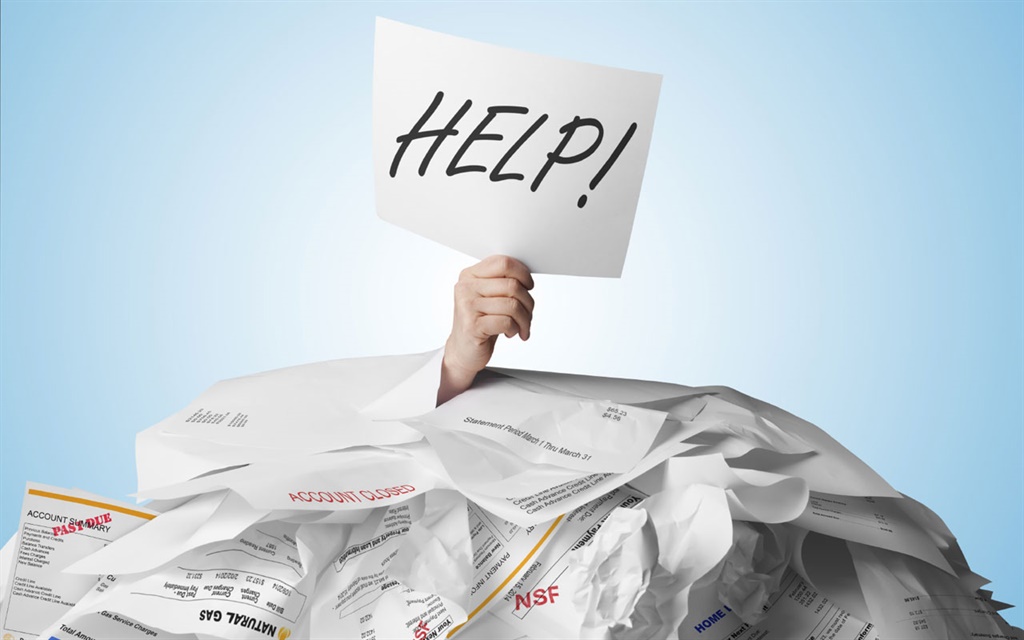
- The negative economic impact of the coronavirus pandemic has caused many South Africans to sink deeper into debt.
- Living paycheck to paycheck may sustain you for a period, but cannot be a long-term financial strategy.
- Debt puts unnecessary pressure on the household finances and can ruin relationships.
It is important to understand the difference between good debt and bad debt, says Ramona Singh, administration director and registered debt counsellor at Infinite Life.
"Debt costs money. Think about initiation fees and interest chargeable as examples. Having too many accounts and credit will negatively affect your disposable income," she says.
Furthermore, the negative economic impact of the coronavirus pandemic, perpetuated by the second wave currently building up steam in the country, has caused many South Africans to sink deeper into debt.
"It's a reality that most South Africans live in debt, from paycheck to paycheck, which may sustain you for a period, but certainly cannot be a long-term financial strategy," cautions Singh.
"Start living within your means and avoid taking on any new credit as tempting as it may be. Debt puts unnecessary pressure on the household finances and can ruin relationships. If you fall into the trap of taking on credit, it is very difficult to stop."
In her view, when you start feeling overwhelmed with your debt, seek professional help via a financial advisor or debt counsellor.
Singh provides five tips to help steer clear of bad debt in a post-Covid world.
Create a budget
"Creating a budget can be daunting but is hugely rewarding in helping to keep you disciplined. It means living within your means and is the fastest way to reach financial freedom," says Singh.
"Awareness of your finances helps you to more easily differentiate between needs and wants. This doesn't mean that you won't be able to buy what you want to this holiday. It just means that you need to do so within reason."
She suggests keeping track of the available funds in your bank account. Make a list of all the items you need to purchase and what it amounts to. A rule of thumb is to never make debt for non-essential items.
Bank statements
Ensure that you check your bank statements on a monthly basis. Calculate how much you spend and what you spend on.
"Only once you understand your habits, will you know which areas you need be more mindful of. Every month make a list of items you spend money on regularly - like coffee - and ad hoc items like birthday gifts. Make a note to check your bank statements so you can see whether you are spending more than what you earn often or not," says Singh.
"You will also be able to clearly see where you over-spent. Mark it with a colour so you can compare those expenses every month. Better yet, set yourself a goal so that it feels like you're working towards achieving something important that impacts every other area of your life."
Credit report
An annual credit report helps you monitor your credit status and outstanding balances on your credit accounts. It is important to know the outstanding balances on your credit accounts in relation to your income and other expenses, so that you can work towards reducing it periodically.
A credit report also gives you a score. This score determines how eligible you are for additional credit such as loans, cell-phone or laptop contracts etc. These reports are free to download and will show you where to improve.
Paying off debt
"Pay accounts with the higher interest rates and start paying a little more than the minimum payment. Be realistic to stay committed," says Singh.
"When you pay slightly more than your minimum instalment, you drastically reduce the repayment period as well as the interest to the credit provider. All having a direct influence on your credit score."
Saving
In the view of Singh, everyone should save as much - or as little - as they can just to develop the discipline of saving.
"Separate needs from wants and make small sacrifices short term for long term gain. If the Covid-19 pandemic has taught us anything, it's that you never know what the future holds. Having some cash in the bank helps to take some stress off you by not having to accumulate unnecessary debt," she explains.
"R100 sounds like a little, but a little goes a long way. Put a stop payment on your account to go into a separate savings account - ideally one that you don't have easy access to - and include it on your budget as an expense. This helps to create the discipline you need to become a saver."
* Compiled by Carin Smith




 Publications
Publications
 Partners
Partners











